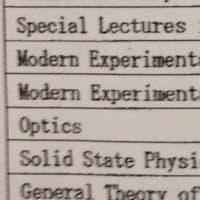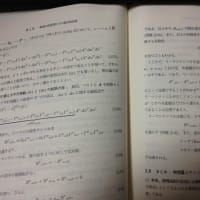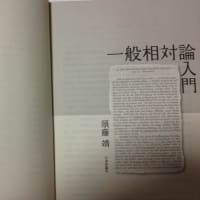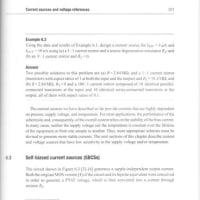But Nature then was sovereign in my mind,
And mighty forms, seizing a youthful fancy,
Had given a charter to irregular hopes.
In any age of unevenful calm
Among the nations, surely would my heart
Have been possesed by similar desire;
But Europe at that time was thirilled with joy,
France standing on the top of golden hours,
And human nature seeming born again.
- William Wordsworth
IN WORDSWORTH'S REMINISCENCE we find the second fear raised by
an innate psyche.
The Romantic poet is exhilarated by the thought that human nature
can be born again, and could only be depressed by the possibility
that we are permanently saddled with our fatal flaws and deadly sins.
Romantic political thinkers have the same reaction, because an
unchanging human nature would seem to subvert all hope for reform.
Why try to make the world a better place if people are rotten to the
core and will just foil it up no matter what you do?
It is no coincidence that the writings of Rousseau inspired both the
Romantic movement in literature and the French Revolution in history,
or that the 1960s would see a resurfacing of romanticism and radical
politics in tandem.
The philosopher John Passmore has shown that a yearning for a better
world through a new and improved human nature is a recurring motif in
Western thought, which he summarizes in a remark by D.H.Lawrence:
"The Perfectibility of Man! Ah, heaven, what a dready theme!"
The dread of a permanently wicked human nature takes two forms.
One is a practical fear: that social reform is a waste of time
because human nature is un changeable. The other is a deeper concern,
which grows out of the Romantic belief that what is natural is good.
According to the worry, if scientists suggests it is "natural" -
part of human nature - to be adulterous,violent, ethnocentric, and
selfish, they would be implying that these are good, not just unavoidable.
以上を120字程度の日本語に要約せよ。
いやなら、続きを読みなさい。(っていう問題だったら、君はどうする?)
As with the other convictions surrounding the Blank Slate, the fear of
imperfectibility makes some sense in the context of twentieth-century
history.
A revulsion to the idea that people ara naturally bellicose or xenophobic
is an understandable reaction to an ideology that glorified war.
One of the most memorable images I came across as a graduate student was
a painting of a dead soldier in a muddy field.
A uniformed ghost floated up from his corpse, one arm around a cloaked
an faceless man, the other around a bare-breasted blond valkyrie.
The caption read,"Happy those who with a glowing faith in one embrace
clasped death and victory."
Was it a kitschy poster recruiting cannon fodder for an imperial exploit?
A jingoistic monument in the castle of a Prussian military aristocrat?
No, Death and Victory was painted in 1922 by the great American artist
John Singer Sargent and hangs prominently in one of the world's most
famous scholarly libraries, the Widener at Harvard University.
That a piece of pro-death iconography should decorate these hallowed
halls of learning is a testament to the warmongering mentality of decades
past.
War was thought to be invigorating, ennobling, the natural aspiration of
men and nations.
This belief led world leaders to sleepwalk into World War I and
millions of men to enlist eagerly, oblivious to the carnage that
lay ahead.
Beginning with the disillusionment following that war and culminating
in the widespread opposition to the war in Vietnam, Western sensibilities
have steadily recoiled from the glorification of combat.
Even recent works meant to honor the courage of fighting men, such as
the movie Saving Private Ryan, show war as a hell that brave men endured at terrible cost to eliminate an identified evil, not something they could possibly feel "happy" about.
Real wars today are waged with remote-control gadgetry to minimize casualties, sometimes at the cost of downgrading the war's objectives.
In this climate any suggestion that war is "natural" will be met with
indignant declarations to the contrary, such as the recurring Statements
on Violence by social scientists averring that it is "scientifically
incorrect" to say that humans have tendencies toward aggression.

And mighty forms, seizing a youthful fancy,
Had given a charter to irregular hopes.
In any age of unevenful calm
Among the nations, surely would my heart
Have been possesed by similar desire;
But Europe at that time was thirilled with joy,
France standing on the top of golden hours,
And human nature seeming born again.
- William Wordsworth
IN WORDSWORTH'S REMINISCENCE we find the second fear raised by
an innate psyche.
The Romantic poet is exhilarated by the thought that human nature
can be born again, and could only be depressed by the possibility
that we are permanently saddled with our fatal flaws and deadly sins.
Romantic political thinkers have the same reaction, because an
unchanging human nature would seem to subvert all hope for reform.
Why try to make the world a better place if people are rotten to the
core and will just foil it up no matter what you do?
It is no coincidence that the writings of Rousseau inspired both the
Romantic movement in literature and the French Revolution in history,
or that the 1960s would see a resurfacing of romanticism and radical
politics in tandem.
The philosopher John Passmore has shown that a yearning for a better
world through a new and improved human nature is a recurring motif in
Western thought, which he summarizes in a remark by D.H.Lawrence:
"The Perfectibility of Man! Ah, heaven, what a dready theme!"
The dread of a permanently wicked human nature takes two forms.
One is a practical fear: that social reform is a waste of time
because human nature is un changeable. The other is a deeper concern,
which grows out of the Romantic belief that what is natural is good.
According to the worry, if scientists suggests it is "natural" -
part of human nature - to be adulterous,violent, ethnocentric, and
selfish, they would be implying that these are good, not just unavoidable.
以上を120字程度の日本語に要約せよ。
いやなら、続きを読みなさい。(っていう問題だったら、君はどうする?)
As with the other convictions surrounding the Blank Slate, the fear of
imperfectibility makes some sense in the context of twentieth-century
history.
A revulsion to the idea that people ara naturally bellicose or xenophobic
is an understandable reaction to an ideology that glorified war.
One of the most memorable images I came across as a graduate student was
a painting of a dead soldier in a muddy field.
A uniformed ghost floated up from his corpse, one arm around a cloaked
an faceless man, the other around a bare-breasted blond valkyrie.
The caption read,"Happy those who with a glowing faith in one embrace
clasped death and victory."
Was it a kitschy poster recruiting cannon fodder for an imperial exploit?
A jingoistic monument in the castle of a Prussian military aristocrat?
No, Death and Victory was painted in 1922 by the great American artist
John Singer Sargent and hangs prominently in one of the world's most
famous scholarly libraries, the Widener at Harvard University.
That a piece of pro-death iconography should decorate these hallowed
halls of learning is a testament to the warmongering mentality of decades
past.
War was thought to be invigorating, ennobling, the natural aspiration of
men and nations.
This belief led world leaders to sleepwalk into World War I and
millions of men to enlist eagerly, oblivious to the carnage that
lay ahead.
Beginning with the disillusionment following that war and culminating
in the widespread opposition to the war in Vietnam, Western sensibilities
have steadily recoiled from the glorification of combat.
Even recent works meant to honor the courage of fighting men, such as
the movie Saving Private Ryan, show war as a hell that brave men endured at terrible cost to eliminate an identified evil, not something they could possibly feel "happy" about.
Real wars today are waged with remote-control gadgetry to minimize casualties, sometimes at the cost of downgrading the war's objectives.
In this climate any suggestion that war is "natural" will be met with
indignant declarations to the contrary, such as the recurring Statements
on Violence by social scientists averring that it is "scientifically
incorrect" to say that humans have tendencies toward aggression.




















